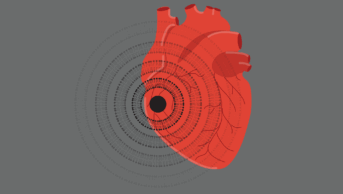
Shutterstock.com
Pharmacists’ interventions can significantly reduce the odds of hospitalisations from heart failure (HF), according to the results of a meta-analysis published in The British Journal of Clinical Pharmacology.
In the study, published on 21 August 2025, researchers conducted a systematic literature search of PubMed and Embase databases to identify randomised controlled trials, published up to November 2024, which evaluated the effects of pharmacy interventions on hospitalisations and mortality among patients with HF, to assess their impact on all-cause and HF hospitalisations.
The researchers analysed 11 randomised clinical trials, which involved 3,576 patients and a variety of pharmacist interventions — although studies with community pharmacy or home-based interventions were excluded.
According to the results of the meta-analysis, pharmacists significantly reduced the odds of all-cause hospitalisations compared to usual care (3,472 patients, 927 events; odds ratio [OR] 0.67, 95% confidence interval [CI]: 0.49–0.92, P = 0.0119).
In terms of HF hospitalisations, similar results were retrieved (3,442 patients and 504 events; OR 0.64, 95% CI: 0.48–0.87, P = 0.0038), with subgroup analyses indicating greater effectiveness in outpatient settings and when extended interventions were provided.
Lorenz Van der Linden, principal investigator of the meta-analysis and a pharmacist at University Hospitals Leuven, in Belgium, said: “Across inpatient and outpatient settings, pharmacist interventions in HF significantly reduced all-cause, as well as HF, hospitalisations.”
“HF is a major cause of unplanned hospitalisations, especially in high-risk patients, such as those recently discharged or those with worsening HF. Hospital-affiliated or clinic-based pharmacists, though underutilised, may help reduce this burden.
“Our findings highlight the importance of integrating pharmacists into multidisciplinary teams [MDTs] to improve HF management for in and outpatients.”
Paul Wright, consultant cardiovascular pharmacist at Barts Health NHS Trust, commented: “We know that optimising guideline-directed medical therapy in HF leads to reductions in mortality of >70%, but the challenge remains on how to do this effectively in practice.
“The authors have done a great piece of work to demonstrate the value of hospital-affiliated/clinic-based pharmacists in improving outcomes for individuals with HF, demonstrating significant reductions in hospitalisations, which leads to better patient outcomes and potential cost savings. This analysis supports the integration of pharmacists into MDTs in the hospital setting to improve HF outcomes.”
Jo Bateman, lead cardiology pharmacist and HF service lead at Countess of Chester Hospital NHS Foundation Trust, said she hoped that the results will boost the presence of pharmacists in HF teams.
Bateman added: “Despite recommendations from [the charity] National Confidential Enquiry into Perioperative Death and the National Institute for Health and Care Excellence [NICE] to include pharmacists or specialists in medicines in the HF MDT, this remains to be often not the case.
“I have seen the number of pharmacists specialising in HF grow over the past 10–15 years, but progress has been slow.
“This meta-analysis provides further robust evidence that pharmacist interventions across inpatient and outpatient HF settings significantly reduce all-cause, as well as HF, hospitalisations.
“It is vital that pharmacists are included as an integral member of the HF MDT, delivering patient-centred, individualised care as independent practitioners. We need to empower pharmacists to get involved in HF services and support each other through networking in the Royal Pharmaceutical Society and UK Clinical Pharmacy Association.”
On 19 August 2025, NICE recommended six home-based digital technologies in draft guidance to support patients recovering from heart disease and HF.
The technologies will deliver exercise programmes, cardiovascular disease education, medication management and psychological support.


